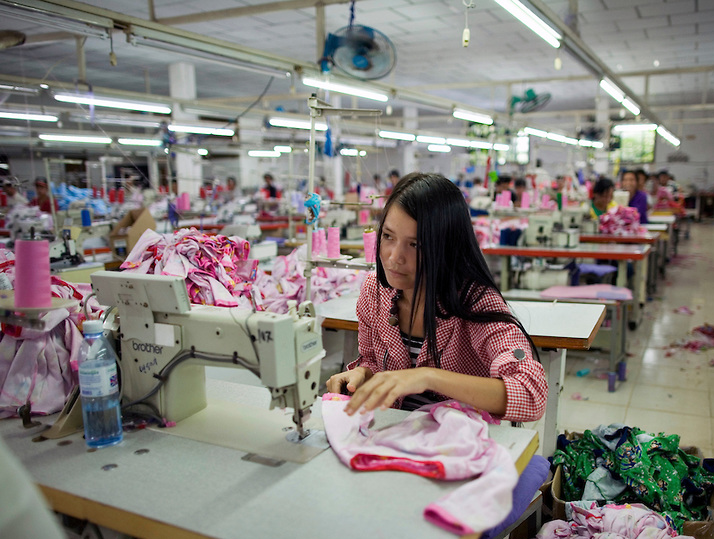The apparel and textile industry Sri Lanka has rapidly risen from just being a sewing operator that was dependant on the apparel quotas offered by the EU and USA to now being an independent textile hub. The textile industry in Sri Lanka, with its complete cycle of garment production right from the design table to stores that are based, both locally and globally, makes Sri Lanka a big name in the apparel industry.
Following the discontinuation of the global quote system in apparels in 2005, the fabric suppliers in Sri Lanka came up with the brilliant replacement of the local apparel trade as the best ethical source of apparel manufacturing on a global scale. Having being a participant to almost 27 ILO conventions that serve to uphold the rights of labors, prevention of child labor and workplace ethics, Sri Lanka found itself in the perfect position to endorse the theme of ‘Garments without Guilt’ to the top fashion manufacturers in the world.
The apparel manufacturers in Sri Lanka collaborated under the JAAF, which is the Joint Apparel Association Forum together with numerous government organizations in a bid to upgrade the working conditions of the Sri Lankan garment manufacturing facilities to meet up with the international standards. Owing to the gracious contribution of garment manufacturing facilities, Sri Lankan employ workers who are only above the age of 18 and they are offered a basic salary that is recommended by the Sri Lankan government for private sector workers.
As the pitiful condition of apparel suppliers in other manufacturing countries became clear to global fashion buyers, Sri Lanka’s bold initiative to uphold the rights of labors and workplace ethics was globally applauded as a praiseworthy proposal to positive superiority. Now, the apparel workers in Sri Lanka stand in an esteemed position when compared to their counterparts in other countries. Additionally, the ethical sourcing of raw materials and the environmental protection measures that have been strictly followed by the apparel manufacturers in Sri Lanka has further established Sri Lanka’s position as an ethical apparel manufacturing location.
Following the launch of the ‘Garment without Guilt’ program, approximately 80% of the apparel manufacturing factories in Sri Lanka have subscribed to the labor standards that have been set up by the industrial charter as a requirement to obtaining the ‘Garment without Guilt’ certification. This charter consists of regulations for apparel factories to be free of forced or child labor, discriminatory acts, sweatshop practices and unethical working conditions. This campaign also calls for workplace safety to ensure the protection of workers and protection of environmental ethics that also include reduction of carbon foot print.
All this commitment that has been exhibited by the Sri Lankan apparel suppliers have made the “Made in Sri Lanka” label synonymous with reliability, social and environmental accountability and top quality.


No Comments